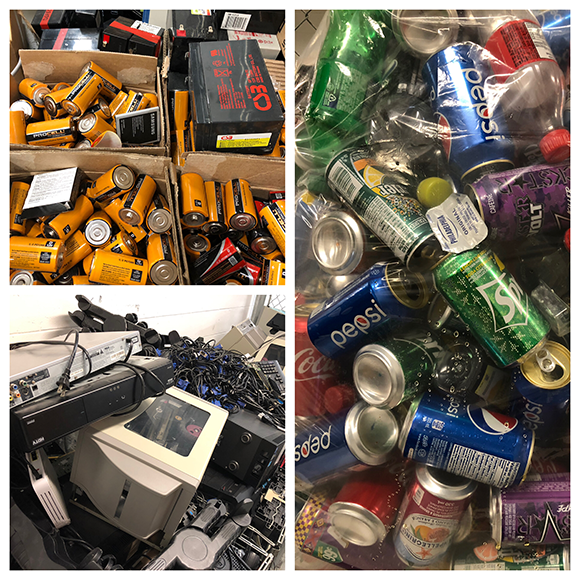Sustaining green practices beyond Earth Day
Even in recycling, quality over quantity matters.

On this Earth Day, the MUHC is taking important strides to decrease its carbon footprint across its network as a leading environmentally-friendly healthcare institution.
How, exactly? The MUHC is striving to be a greener institution and is set to create a Sustainable Development Committee – a multidisciplinary body with representation from numerous MUHC departments and the authority to influence and recommend green initiatives across all of our sites.
A hospital environment comes with its own hurdles to environmental sustainability with biomedical and hazardous waste an expected by-product of operations. These waste streams must undergo strict processes respecting all provincial and federal environmental regulations in order to neutralize and eliminate negative environmental impacts from our health care waste by-products.
Furthermore, an examination of our institutions provided some perspective on the waste generated in a calendar year:
- Over 82% of all confidential paper was shredded and recycled – 225,000 kg worth
- Nearly 900,000 batteries were recycled
- Wood skids, cardboard and clear plastic wrap and electronic waste are all recycled
- 15 metric tons of electronic waste, the equivalent of saving 76.5 cars every year
- We recycle used iPhones, iPads, laptops, computers
These are encouraging feats but recycling practices still need improving as the MUHC produces over 3.6 million kilograms of garbage every year, of which 15 percent is recyclable. Throwing recyclables into the recycling bin is not enough since soiled containers, papers, cups, and more blend together to contaminate the entire bag, leaving no choice but to dispose the good with the bad.
The MUHC is working at providing new recycling bins to make it easier to know where and how to dispose of your recyclable goods. Still, it is important to ensure items are rinsed free of food or liquid residue before disposal.
Better recycling practices is just one of the initiative the committee will look to build on. Other initiatives include being one of the first hospital centres in Montreal to introduce reusable sharps containers for disposal across all our sites. Currently in place at the Glen site, these containers will be introduced on our other sites this spring. This represents a significant reduction in cardboard and plastic waste and generates tens of thousands of dollars in savings. Our success has led other major health institutions in the metropolis to follow our lead.
The Glen site was the first Quebec hospital to be certified LEED New Construction by the Canada Green Building Council. LEED is a rating system internationally recognized as the mark of excellence for green buildings and now we are on track to receive LEED for Existing Buildings: Operations & Maintenance certification later this year.
